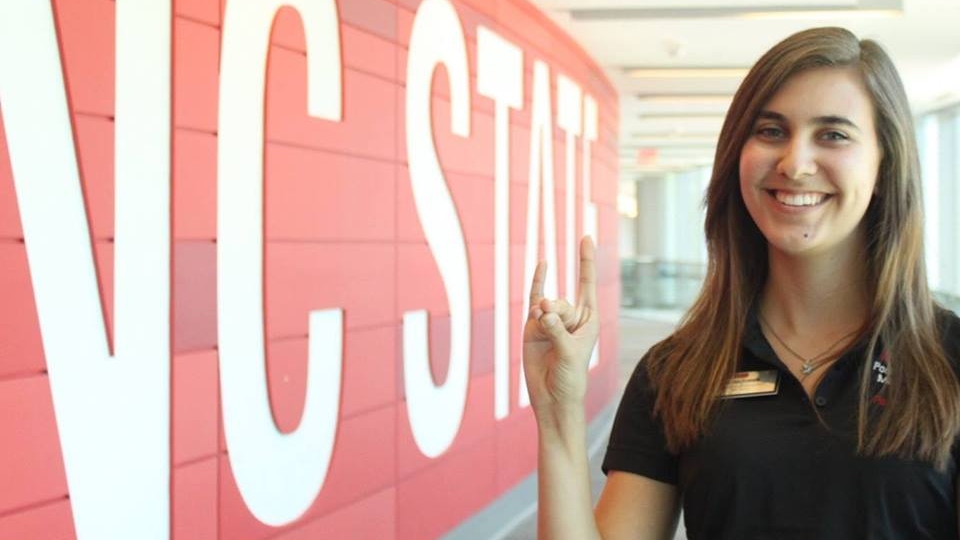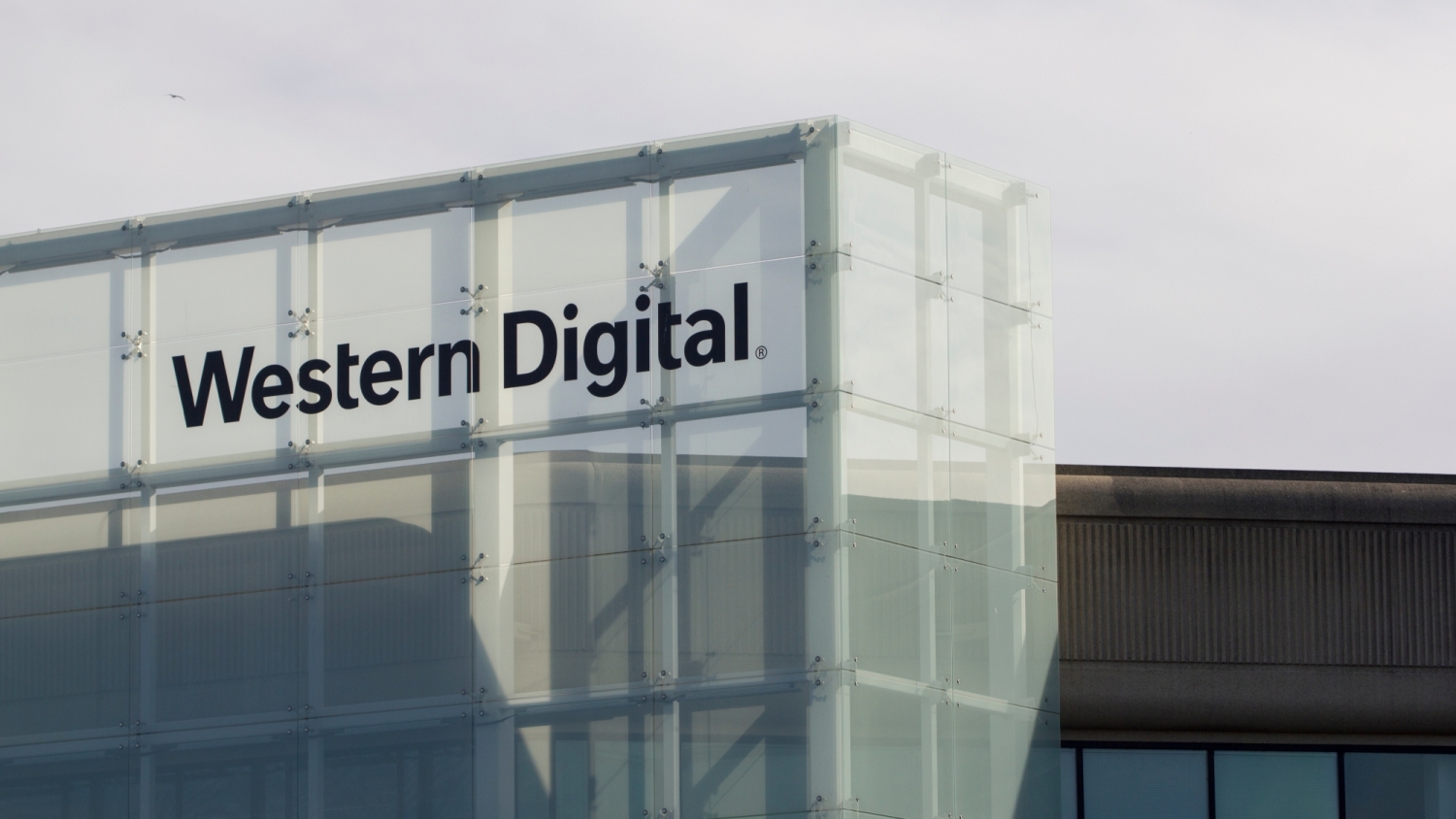Alena Turner BS’19: Raising the Bar for Supply Chain Students at NC State

Alena Turner is not your average supply chain student at NC State. That is, not many students can say they helped save an aerospace and defense company over $1 million, like Alena did during her co-op with Collins Aerospace last year. And they can’t all say they are president of the NC State Supply Chain Club, or that they plan to graduate after only three years and have already accepted a full-time job offer. But again, Alena — who has known she wants to be a supply chain leader since high school — is not your average supply chain student.
While Alena may stand out from her peers in many ways, she also has a passion for helping them achieve their goals. That’s why she works at the career fairs around campus to help connect students with employers, why she organizes development opportunities for other students through her role as Supply Chain Club President, and why she’s always on-hand to answer questions anyone has about supply chain management — leading some of her peers to believe that if you say the words “supply chain” three times in Nelson Hall, you will summon her to answer any questions you may have on the subject.
In the below interview, Alena shares her story about how she’s become the unofficial Poole College supply chain student guru — from the birth of her love for supply chain in high school, to her exciting new plans for employment after graduation.
How did you decide that you wanted to study supply chain?
My dad is in the defense industry, so when I was in high school, he was the first one to say, ‘you should look at this. It’s something that uses your skills.’ I’m very analytical, but I also have people skills. Essentially, I like talking to people, and I didn’t want to be stuck in a box the rest of my life engineering something, even though I like the idea of engineering. Coming into college, I almost decided to do industrial systems engineering (ISE), because I was interested in process improvement and making things better. But one day when I was still in high school, I was at an airport and just got to chatting with someone who’s in supply chain, and they talked to me about what they did. They worked in procurement and were involved with data crunching and the more analytical side of things, but they also worked with suppliers and dealt with more people skills and created a lot of relationships. I realized those were all things that I loved and wasn’t going to get in ISE, so I came into college knowing that I wanted to do supply chain.
How did you first get involved with the Supply Chain Club?
I started going to Supply Chain Club meetings because Mrs. Freeman really pushes it on you if you have her as a professor, and I was happy to go. I’m graduating after only three years, so I was pretty young when I was in her class, which was the first supply chain class I took. I knew that I loved supply chain, but there are so many different areas within it — I wanted to learn more. I wanted to figure out ‘Do I want to do logistics? ..Or purchasing?…Or management?’ So I would go to the meetings, and they would have speakers from different companies come in and talk about what a day in their life was like. So instead of me having to go to an airport and meet someone that’s in supply chain — which never happens — it was a resource that they brought to me, so that’s why I started going.
How did you become president of the Supply Chain Club? What does your role entail?
Well, first I was an officer, and the officers are who the president role is selected from. I don’t remember why I submitted an application to be an officer initially. To be honest, Mrs. Freeman probably told me to! After I submitted my application, I was chosen to be an officer, and from there I was just really involved with everything. Eventually, we needed a president, and I just seized the opportunity. I think it’s one of those things where the best way to get involved — which is so important — is to just raise your hand for things and say ‘Yea, I’ll do that.’ Not overcommitting, but just giving yourself the chance to prove your worth. I was a sophomore at that point — well, a junior, technically — so I was younger, and I thought it was important for me to keep raising my hand for things and say, ‘Yeah, I’ll do that…I can help with this…I can help with that,’ when opportunities came up.
As far as what the role entails, I spend a lot of time finding volunteers for the supply chain recruiting event. And because I work for the Career Development Center as well, I’m at all the career fairs, where I help make sure the employers are happy and that the students and volunteers have everything they need. Then, post-career fair, I really do a lot of work on getting different employers to come in and speak at our meetings, and I just help to plan the meetings in general. I also help with the tours — we usually do two to three supply chain tours a semester for the students. We’ll host sign-ups, find companies we can visit, and then we bring the students to those locations around Raleigh for them to see what things are actually like in different types of plants and facilities. It lets students see what things are really like out in the field, which I know a lot of them really appreciate.
What do you enjoy most about your experience with the club?
I shouldn’t say free pizza…free pizza is great. No, but really, we joke that if you whisper the words “supply chain” three times in Nelson Hall, I pop up behind you. I think that’s because I really enjoy helping students figure out what they want to do. It’s nice that I’ve been able to meet people at different companies and see what they’re doing and ask them questions, but I also love sharing my experiences and bringing that to other students. It’s great being able to talk to students who are like ‘Oh yea, that guest speaker made me realize I want to do purchasing,’ or ‘I want to do demand management now.’ That’s our focus in Supply Chain Club — getting students to where they want to be in the world.
What has your experience been like Co-Oping at Collins Aerospace?
I worked there full-time from May until January, and now I’m back in class, but I’m still working there part-time. It’s definitely interesting working on real projects for companies like that, especially with the company I chose. They really threw me in to it. They were like, ‘You have a real job, you are somebody that’s important, and people rely on you.’ My day-to-day routine included doing the Gemba walks every morning, where I addressed materials shortages around the plant. Any part number that they needed, any shortage that they had…it was my job to figure it out. If we had something on the floor being worked on and something has happened and a part isn’t there — my job was chasing after and identifying these shortages around the plant. They call it “whack-a-mole.” And sometimes the material shortages are really important! Take Boeing, for instance — we supply a lot of our stuff for them and they’re one of our most important customers. They can charge us $20,000 a day if they have a plane on the ground. At one point we had a particular shortage, and it was going to be a $1.2 million fine because we weren’t going to be able to get the part for three months, since our vendor had given us the wrong lead time. So I had to go and call different companies to see if they could make it, if they had some if it in stock, and find enough to get this part out the door and a plane off the ground. Doing that and being able to say, ‘I stopped us from getting a $1.2 million fine,’ — that’s a real-world experience.
What are your plans for after graduation?
A: “I have a job! I’m so happy. I am going to be working full time with Dell. They have a supply chain rotational program that’s a three-year rotation starting out here in Apex. I’m really excited to start working for a company that places a high emphasis on supply chain and sustainability, and also retaining talent. I actually don’t know what my first role is yet, though. I’m currently just in the program — I have the job lined up, but they haven’t told me what my first actual job title is going to be.
What was your job search process? How did you prepare?
For this particular opportunity, I wasn’t even looking for it. When I work at the career fairs, part of what I do is make sure the employers are happy. I had brought the Dell reps in for one of the fairs and we just started chatting, and I eventually told them about what I do, that I’m a student — that sort of thing. I wasn’t looking for a job — well, I had resumes with me, so subconsciously I guess I was. And I knew I wanted a rotational program because I love moving, and I wanted to learn more. I think it’s a great opportunity to be in any leadership development program. I knew a little about Dell and really enjoyed that they had a company culture of improvement and strive to be on top, but I hadn’t really considered a career with them until then. Two of the recruiters, Mike and Diane, really made me take a hard look at what I wanted from a company and how I wanted to give back to the world.
As far as preparation goes, a lot of it happens months before you actively start looking for a job. Getting involved in things you’re passionate about and having some leadership experiences to talk about were a big help to me when speaking to recruiters. You have to have the qualifications to get a job, but I think getting to know the recruiters and taking the time to just have that relaxed interaction and talk to them about who you are — that really helps sell yourself as a candidate.
What advice do you have for other students looking for their first full-time job?
The thing I tell everyone is, ‘volunteer for the career fairs.’ That is how I’ve found every single one of my jobs. And don’t just attend them passively — engage with the recruiters. Employers are looking for something that makes you different. If you’re relaxed, and happy to be there, they’re going to like that. Because as much as they’re looking to see if you’re academically a good fit, they’re also looking at if you’re someone that they want to work with. I focused a lot when I was a freshman on getting involved and proving that I can work hard — you know, getting some leadership experience, a good GPA — but then, really the most important part was the relationship building. For my co-op, I actually met the recruiter my freshman year, and without even seeing my resume, he offered me the job because I could talk about my experiences. It’s important to be able to talk about what you do and what you enjoy about supply chain, and really just being able to let them know what makes you tick.
- Categories:


